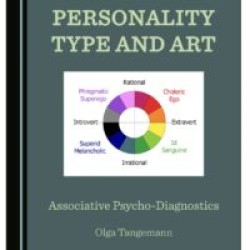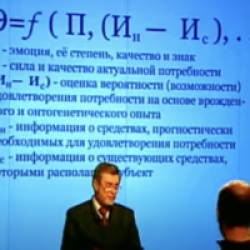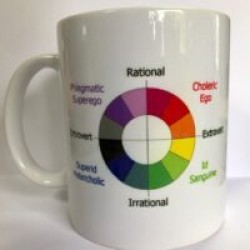Socionics and Its Capabilities of Boosting Personality Development
-
The purpose of the present article is to familiarize the reader with theory of socionics and to reveal how each and every one of us could benefit from the knowledge of one’s psychological type, and awareness of individual differences between the people, in the context of fostering personality development. At first, I would like to offer a quick digression into the history.
The science of socionics is a relatively young one. It was conceived in the 1970s at the crossroads of various disciplines, such as psychology, sociology, and informatics. Socionics is concerned with the study of the man and his psychological structure, his character attributes and his interaction with society. In addition, it can be said that while socionics studies the psychological traits of different types of people, it is also involved in researching their social roles or sociotypes. The corner stone of socionics is the study of information metabolism between the people of different sociotypes. By information metabolism, we mean the ways in which perceive, process, and disseminate information to the external world.
Socionics was founded by a Lithuanian pedagogue and economist, Aušra Augustinavichute currently deceased (1). However, socionics, her life’s work and occupation, lives on and keeps developing, presenting the joy of self-knowledge to hundreds of thousands of people, scattered around the planet. Socionics appeals to people of diverse makeups, professional foundations, and interests. The young science lifts the veil in the poorly understood areas of human psyche, whose manifestations cannot be explained simply in terms of physiological and chemical processes taking place inside the body.
The sources of socionics can be identified within the theories of famous psychoanalysts, such as Sigmund Freud, Carl Jung, and also in the works of Antoni Kempinski, the man who coined the term “information metabolism.” A. Kempinski who studied psychopathologies, came to a conclusion that the processes taking place inside the human psyche are, in their substance, very similar to the biological processes, and bear sufficiently close resemblance to metabolism. An upset of metabolism, where substances come in pre-designated quantities, can lead to failures in normal bodily functions and result in various ailments. Kempinski suggested that there is a sui generis information cycle happening in human psyche, where lack or abundance of certain information can upset the psychological functioning as whole.
However, the task of devising a system capable of clearly labeling these informational phenomena of the human psyche, analogous to the one used for labeling molecular phenomena of the human body, seems to fall within the range of the impossible. Hence, metabolism of the psyche has a qualifier, “information,” attached to it. Thus, the understanding of biological metabolism served as a starting point for explaining processes of inorganic nature.
A. Augustinaviсhute made another important step toward the explanation of how the psyche operates. Based on model “A,” she described information metabolism of each of the 16 psychological personality types (2). Because it is common to people to exchange pieces of information with each other, it also became feasible to describe the nature of interactions between the people of different types. The newly obtained knowledge of people’s typological abilities and their interactions found approval of those, who were long searching for, but could never find, satisfactory answers to the worrying questions, such as, “Why am I like this?” “Why can I not avoid quarreling with my loved ones?” “What are the reasons of misunderstandings?”
Socionics, unlike any other currently exisiting personality typology, is able to provide most complete and material answers to these and many other questions concerning your personal life. It is necessary for one’s own good and understanding of his internal world to know his psychological nature, his abilities and talents, strengths and weaknesses. Very often we hear the saying, “Be the change you want to be.” You are also likely to be familiar with another mantra of no less importance, “If you can’t change it, change your attitude.” Analogous to our solar system, every person is at the center of his individual mini-universe. Whatever we think of ourselves and of others, our dreams and routine plans, more or less express themselves in our interactions with the surroundings. Thoughts materialize in visible actions, while the latter carry certain, very often largely unanticipated, consequences for us. The link between our ways of thinking and the occurring events is not always an apparent one. However, it is precisely this link we refer to in the course of our deliberations on the material nature of thoughts that have a tendency to become a part of earthly reality.
An opinion that bodily illnesses are a consequence of their spiritual counterparts and the distorted perception of reality in general is a particularly widespread one. It is not necessary to pay for an expensive specialist consultation, in order to successfully cope with hardships in one’s personal life. On the contrary, it will suffice to familiarize oneself with the fascinating science of socionics, to take a series of socionical personality tests, and to discover the astounding world of individual differences. An acquaintance with socionics became an awakening of a sort for most people, a boost toward a more informed and goal-oriented self-realization, toward the search for a more agreeable activity, personal relationships, and conditions of living.
Currently, socionics knowledge can be accessed both online through the myriad of socionics-devoted websites and forums and in bookstores. There are plenty socionics-oriented societies, schools, and clubsiIn Moscow, St. Petersburg, Kiev, and many others cities both within and beyond Russia and Ukraine.
Pondering about the benefits of socionics in the context of fostering personality development, we cannot get far without defining “personality” in the first place. What is personality? “Personality is a relatively stable behavioral pattern of an individual, primarily built upon the foundations of being included into the social context. It is pivoted on one’s self-esteem, which based on the other public views of the individual, and his views of the public.” (3)
A. Leontiev, an outstanding Russian psychologist, who studied the problems of consciousness and pioneered activity theory, once said, “You are not born a person, you become one.” Thus, Leontiev highlights the gradual changes taking place inside one’s consciousness, as he develops interactions with the environment and becomes more aware of himself as a person (4):“It is that unique organization of the subject’s holistic activities, that emerges at some stage in the course of development of his human relationships with the external world, which constitutes the genuine foundations of his personality. The person lives in a sort of a subjectively expanding reality. At first, it is a narrow circle of the neighboring people and objects, interactions with them, sensory perception of them, and digestion of what is known about them, i.e. digestion of their meanings. However, that same person then goes on to discover a new reality, lying far beyond the scope of his practical activities and direct communications. This process envisages the expanding borders of the cognizable and imaginable world.”
It is impossible to obtain a clear conception of oneself as an individual and have an adequate self-esteem without being able to appreciate one’s own individuality and without being conscious of the existing individual differences. There are as many different opinions as there are people. Positive remarks from their side can inspire us, while negative ones cause us to doubt ourselves, drive us into depression, and, in the worst case, can bring about neurotic disorders. Teenagers are the especially sensitive ones, since they care a great deal about views held by their peers, which is why adolescence is considered to be the critical stage of personality development.
Ignorance of one’s own physiological and psychological attributes often leads to the formation of inadequate self-esteem, and inability to adequately assess one’s successes and failures. Self-assertion and the drive to succeed in various types of activities, is directly linked to self-esteem. People with an inadequately low or high self-esteem often fear criticism, suffer from the unrealistic nature of their wishes, set unfeasible goals for themselves, and err in their forecasts of the future. On the other hand, people with adequate self-esteem concentrate on solving problems that lie within their powers, and striving toward feasible goals. They perceive their achievements, however big or small, as successes, which helps them develop self-respect and confidence.
The question arises of what are the telltale characteristics of a developed and accomplished personality? Personality’s structure comprises character and temperament. The two determine individual’s typical reactions to various life situations. According to A. Batarshev (5), accomplished personality is distinguished by a volitional character and qualities, such as independent conduct, perseverance, self-composure, and initiative. Personality’s qualities are also evident in the person’s attitude toward the external world: in reference to his occupation (activity), other people, and himself (commutability and altruism).
It can be said that the person’s character suggests consciousness of his actions. Depending on changes in life circumstances, influx of new information, and modifications of the person’s consciousness, his or her character can adjust for the better or for the worse, as opposed to his or her temperament, which is largely heritable and can be hardly altered. Character and temperament largely depend on the personality’s physiological attributes, the higher nervous activity. Socionists study people’s psychological features, that are closely connected to the person’s character and temperament and are inscribed into the person’s genome at prenatal stages. This is why it is important to each and every one of us to appreciate the potential the nature endowed us with in order to make the right decisions in relation to many personally significant issues, such as choosing one’s career path, spouse, business partner, and social sphere.
According to socionics, every person is a vector of one of the 16 types of information metabolism. This means that in every human being there is a certain dominant character trait, certain psychological function. The opposite traits are merged into dichotomies, introversion – extraversion, rationality – irrationality, logics – ethics, sensing – intuition. In identifying the dominant traits or TIM (type of information metabolism) a survey is usually used. One cannot be logical and ethical, sensing and intuitive to the same extent, despite the fact that the human psyche features both of the functions.
Every trait has a special sign or symbol assigned to it. Rational functions comprise logics – ethics, i.e. functions of judgment and appraisal. Irrational functions comprise sensing – intuition, i.e. functions of perception. Functions can be extraverted, i.e. their influence is diverted outward, with a view to altering the external world, or introverted, i.e. their energy is directed inward, with a view to develop the person’s internal world. Extraverted functions are denoted with black signs, while the introverted ones are denoted with white signs. In the aggregate, there are eight functions, four of which are extraverted, and four of which are introverted. Below is the brief description and notation of functions borrowed from E. Filatova’s book, ‘Socionics in portraits and examples. “(6)
Te
 – Business logics or applied logics) – business grip, efficiency, reasonableness, technology;
– Business logics or applied logics) – business grip, efficiency, reasonableness, technology;Ti
 – Structural logics or theoretical logics – abstract structure, system, scientific theories;
– Structural logics or theoretical logics – abstract structure, system, scientific theories;Fe
 – Ethics of emotions – open emotional interaction, immediate emotional reaction;
– Ethics of emotions – open emotional interaction, immediate emotional reaction;Fi
 – Ethics of relationship – relationships between the people, moral issues, consciousness, and abiding by traditions;
– Ethics of relationship – relationships between the people, moral issues, consciousness, and abiding by traditions;Se
 – Volitional sensing or sensory of power – the strive toward action, expansion, acquisition ownership, tenacity;
– Volitional sensing or sensory of power – the strive toward action, expansion, acquisition ownership, tenacity;Si
 – Perception sensing or sensory of sensations – harmony of spatial forms, feeling of comfort and relaxation;
– Perception sensing or sensory of sensations – harmony of spatial forms, feeling of comfort and relaxation;Ne
 – Intuition of insight– the ability to appraise the internal contents, potential abilities of the subject;
– Intuition of insight– the ability to appraise the internal contents, potential abilities of the subject;Ni
 – Intuition of doubt or intuition of time – premonition, forecast, ability to detect development dynamics, poetical imagination, mystical feeling.
– Intuition of doubt or intuition of time – premonition, forecast, ability to detect development dynamics, poetical imagination, mystical feeling.Psychological functions are associated with different preferences and acquire additional values in the socionics model A. According to model A, the ethics of emotions at the position of a programming function, characterize the person as being superfluously emotional; being able openly express his feelings, and trigger strong feelings on other’s hearts. When occupying the position of a suggestive function, it characterizes the person, who, on the one hand, avoids expressing effervescent emotions, but on the other hand, often yields situationally inappropriate emotional responses.
Thanks to Model A, the majority of human behavioral patterns become clear, and, to a certain extent, predictable. The person is able consciously to correct his own and other people’s behavioral patterns. The understanding of the reasons behind actions allows the person to form the right attitude towards it. A brief description of 16 types can be found in Prokofieva’s article, entitled “Socionics types.” (7)
Apart from locating elaborate information about your psychotype’s peculiarities, socionics can provide us with useful information on your travel companions and how to choose your career path or hire the right people to work as a team. For instance, people with a choleric temperament type struggle with performing mundane tasks requiring fluid and precise moves. This sort of job would more suit a person of a melancholic type, who can produce good quality results, working in a calm and habitual pace.
V. Gulenko, provides a detailed account of business qualities of all the 16 types, in his book, ‘Managing a Collaborative Team,” pointing to their desirable occupations, strengths and weaknesses, and what cannot be expected of people of different types. The author gives concrete advice on how each personality type could achieve perfection at the end of the book, taking his psychological abilities into account. (8)
In conclusion, it is necessary to emphasize the indispensability and extreme importance of the process of self-discovery for every one of us. Knowing your type of information metabolism and developing your skills of identifying the personality types of other people can prove to be of invaluable assistance in resolving many problems and become a priceless guide on perfecting the self and those you hold dear.
Bibliography:
- A. Augustinavichute, M. Socion ‘Black Squirrel’ – 2008
- Model A: http://wikisocion.org/~wikisoci/en/index.php?title=Model_A
3. Dictionaries and encyclopedias at http://dic.academic.ru/dic.nsf/psihologic/970 - A. Leontiev: http://azps.ru/hrest/59/628431.html
- A. Batarshev, ‘Personality and character typology’ Institute of Psychotherapy Publishing – 2005
- E. Filatova, ‘Socionics in portraits and examples’ Good Word Publishing – 2006
7. T. Prokofieva, ‘Socionical types’ http://socionics.ru/shp6.htm
8. V. Gulenko, ‘Managing a Collaborative Team’ Astrel Publishing – 2005
Olga Tangemann 2009 © Associative Socionics










Перенесено из чата ФБ
L. Kuznetsova: Мне подруга рассказала. протипировала себя, меня, наших общих знакомых. и все сошлось. меня просто поразило то, насколько точно соционика отвечает на все вопросы относительно человеческих отношений, если правильно определен ТИМ. мне, в силу ТИМа (ЛСИ), самостоятельно в этих хитросплетениях было всегда очень тяжело разобраться. а теперь, к примеру, я понимаю, почему одни люди сразу же вызывают симпатию, с первых слов буквально, с первого взгляда. а другие — наоборот, могут оттолкнуть, даже не успев толком ничего сказать или сделать) уже где-то тут писала, повторюсь: все (ТИМы) могут всё. просто какому-то ТИМу по умолчанию легче и приятнее дается одно, кому-то другое. мне соционика помогла лучше понять себя, принять свои особенности, которых я раньше стеснялась. например, я в общении могу быть достаточно жесткой (агрессор, как -никак), по жизни скорее волевой человек, стоик. и очень комплексовала, что я какая-то “неправильная” женщина, в сравнении со своими подругами (как потом выяснилось, ЭСЭ и ЭИЭ))) еще поняла, почему такими сложными был первый (гражданский) брак (с конфликтером). и т.д., и т.п. и с позиции сегодняшнего дня я глубоко убеждена, что соционику нужно включить в школьную программу, пусть даже факультативно. это могло бы существенно облегчить жизнь многим)